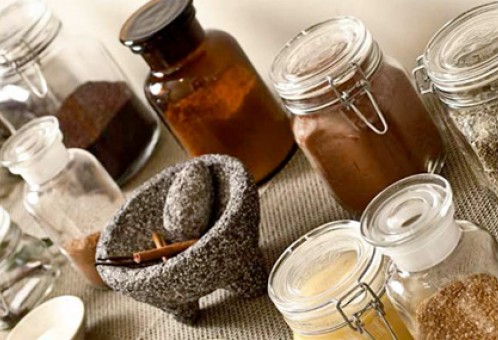So you've been dabbling with essential oils and are now thinking of taking it further... But how do you choose a good aromatherapy certification program?
These days its pretty easy for a couple of folks to get together, throw up a website, set up a credit card merchant account, and call themselves an "institute" with aromatherapy training courses. So its important to ask the right questions to ensure you find a great aromatherapy certification program. You don't want to waste your time or money!
Accreditation
First, look for an accredited program. Accreditation ensures quality not just in education, but also in:
- Finances: Will the school be there for graduation?
- Facility: Do you want your personal data left in an unlocked strip mall office?
- Faculty: Does your instructor have an accredited degree higher than what they are teaching? Or is it an outsourced "tutor" in India?
- Curriculum: Who decides what is taught? What standards is it mapped to? What are the learning outcomes? Are the learning outcomes reasonable for the style and length of course? A weekend course promising to turn you into a clinical aromatherapist should raise a red flag since other courses take years!
What about industry recognition?
Aromatherapy has many industry bodies, of varying importance, relevance, and use to the aromatherapist. Here are the key ones:
- ABMP: ACHS's professional aromatherapy students are approved for student liability insurance; graduates are approved for practitioner liability insurance. Students and graduates must apply.
- Aromatherapy Registration Council (ARC) provides an independent national examination in aromatherapy and administers a register of successful examinees. ACHS Certificate in Aromatherapy graduates are eligible to sit the exam, which is administered twice annually in testing centers worldwide. ACHS graduates currently have a 100% pass rate on the registration exam. Successfully completing the exam entitles you to use the term Registered Aromatherapist and to use the trademarked letters RA after your name.
- Institute of Aromatic Medicine (IAM): ACHS's professional aromatherapy graduates can apply for membership
- International Federation of Aromatherapists (IFA): ACHS's professional aromatherapy graduates are eligible for professional membership
- National Association of Holistic Aromatherapists (NAHA): Provides suggested educational standards in aromatherapy. ACHS is approved to offer Level One and Two aromatherapy curricula. Professional aromatherapy graduates are eligible for Professional Aromatherapist membership with NAHA
Can I call myself an Aromatherapist after completing the Certificate in Aromatherapy program?
Yes! Actually, at this time there are no state licensing requirements that dictate educational requirements for an aromatherapist so anyone can call themselves an aromatherapist. Scary huh! Suggested educational standards are released by NAHA and the Aromatherapy Registration Council (see above). So question someone who calls themself an aromatherapist on their training - don't assume they've had the more than two years of training that a Registered Aromatherapist for example requires.



